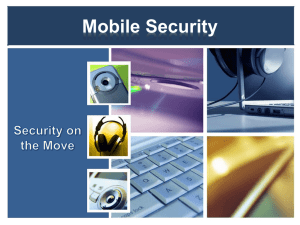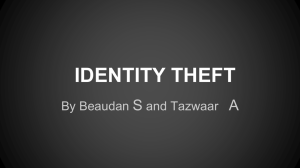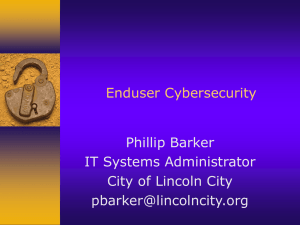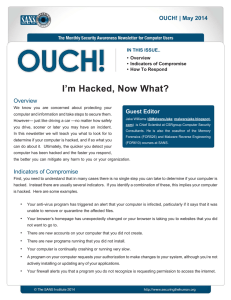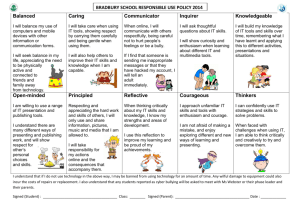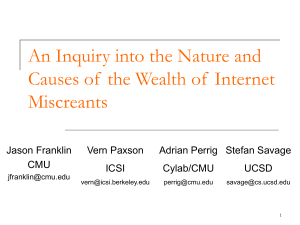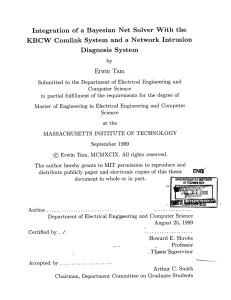University of Wisconsin - Stout Hacked! Now What?
advertisement
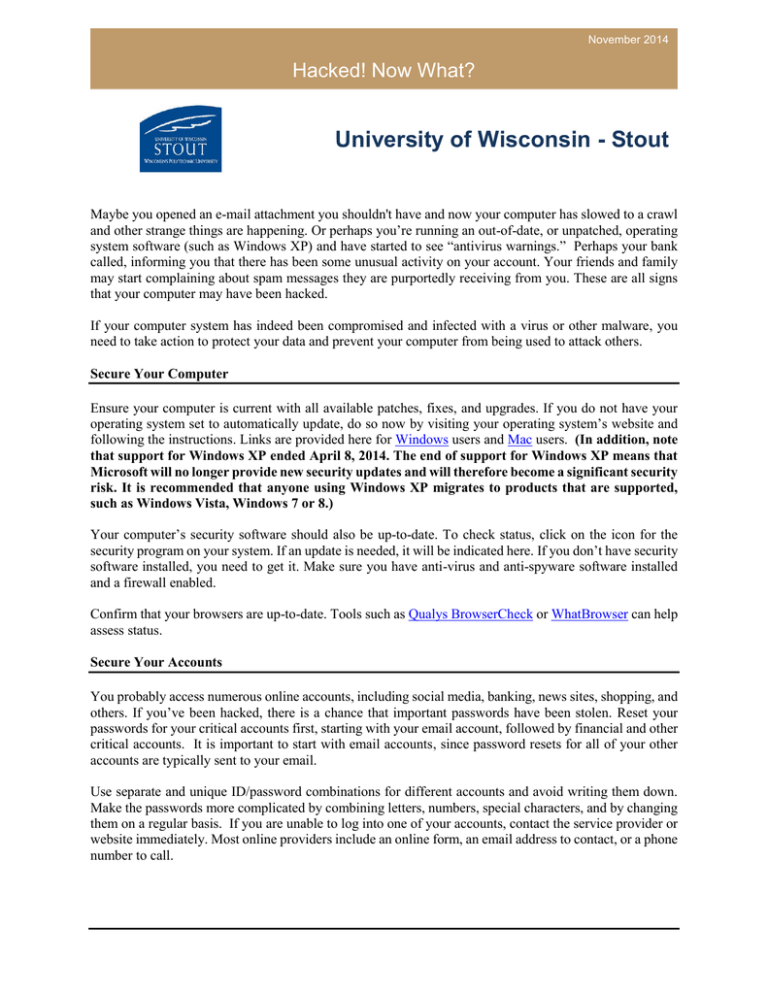
November 2014 Hacked! Now What? University of Wisconsin - Stout Maybe you opened an e-mail attachment you shouldn't have and now your computer has slowed to a crawl and other strange things are happening. Or perhaps you’re running an out-of-date, or unpatched, operating system software (such as Windows XP) and have started to see “antivirus warnings.” Perhaps your bank called, informing you that there has been some unusual activity on your account. Your friends and family may start complaining about spam messages they are purportedly receiving from you. These are all signs that your computer may have been hacked. If your computer system has indeed been compromised and infected with a virus or other malware, you need to take action to protect your data and prevent your computer from being used to attack others. Secure Your Computer Ensure your computer is current with all available patches, fixes, and upgrades. If you do not have your operating system set to automatically update, do so now by visiting your operating system’s website and following the instructions. Links are provided here for Windows users and Mac users. (In addition, note that support for Windows XP ended April 8, 2014. The end of support for Windows XP means that Microsoft will no longer provide new security updates and will therefore become a significant security risk. It is recommended that anyone using Windows XP migrates to products that are supported, such as Windows Vista, Windows 7 or 8.) Your computer’s security software should also be up-to-date. To check status, click on the icon for the security program on your system. If an update is needed, it will be indicated here. If you don’t have security software installed, you need to get it. Make sure you have anti-virus and anti-spyware software installed and a firewall enabled. Confirm that your browsers are up-to-date. Tools such as Qualys BrowserCheck or WhatBrowser can help assess status. Secure Your Accounts You probably access numerous online accounts, including social media, banking, news sites, shopping, and others. If you’ve been hacked, there is a chance that important passwords have been stolen. Reset your passwords for your critical accounts first, starting with your email account, followed by financial and other critical accounts. It is important to start with email accounts, since password resets for all of your other accounts are typically sent to your email. Use separate and unique ID/password combinations for different accounts and avoid writing them down. Make the passwords more complicated by combining letters, numbers, special characters, and by changing them on a regular basis. If you are unable to log into one of your accounts, contact the service provider or website immediately. Most online providers include an online form, an email address to contact, or a phone number to call. Secure Your Mobile Device Our increased reliance on smart devices–including mobile phones and tablets–for everyday activities has resulted in an increased number of hacking attempts against these devices. As we do with our personal computers, we have to ensure that the proper steps are taken to protect our information and devices. This includes installing security software, where available, and keeping all installed software up-to-date. For More Information You’ve been hacked, now what? http://www.net-security.org/article.php?id=1827 Your Email’s Been Hacked! Now What? http://identitysafe.norton.com/blog/blog/2013/06/03/your-emails-been-hacked-now-what/ You Got Hacked! What Now? http://www.pcmag.com/article2/0,2817,2403134,00.asp Hacked: Now What? http://www.securingthehuman.org/newsletters/ouch/issues/OUCH-201209_en.pdf I’ve Been Hacked! Now What? http://netsecurity.about.com/od/disasterrecovery/a/I-Ve-Been-Hacked-Now-What.htm You’ve been hacked! Now What? http://www.doit.wisc.edu/youve-been-hacked-now-what/ Provided By:

